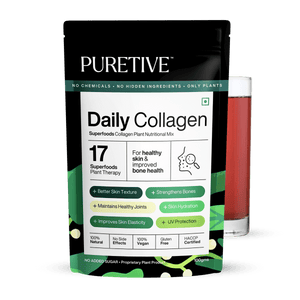Imagine drifting off to sleep effortlessly, without the groggy aftereffects of prescription sleep aids. Natural sleep aids offer a soothing, drug-free way to improve your sleep quality. But do these remedies really work? Let’s explore five popular natural sleep aids, their effectiveness, and how they might help you achieve a peaceful night’s rest.
Tart Cherry Juice: The Natural Sleep Elixir

Tart cherry juice has gained attention for its potential sleep benefits. Tart cherries are rich in melatonin, a hormone that regulates sleep-wake cycles. Research suggests that consuming tart cherry juice can boost melatonin levels in your body, promoting longer and more restful sleep. Unlike sweet cherries, tart cherries have this melatonin-boosting effect. For best results, drink a cup of tart cherry juice about one to two hours before bedtime.
Key Points:
- Melatonin content: Tart cherries are a natural source of melatonin.
- Research findings: Studies show that tart cherry juice can enhance sleep duration and quality.
- Usage tips: Consume about one cup before bed for optimal effects.
Chamomile: Nature’s Calming Tea

Chamomile tea is a traditional bedtime remedy known for its calming properties. Chamomile contains an antioxidant called apigenin, which is believed to promote sleepiness and improve sleep quality. A study published in Molecular Medicine Reports found that chamomile extract can positively impact sleep. Incorporating a warm cup of chamomile tea into your evening routine can be a relaxing pre-sleep ritual.
Key Points:
- Active ingredient: Apigenin, an antioxidant that may aid sleep.
- Research findings: Chamomile extract has been shown to improve sleep quality.
- Usage tips: Enjoy a cup of chamomile tea before bedtime to help wind down.
Valerian Root: The Ancient Sleep Aid

Valerian root has been used for centuries to address insomnia and anxiety. Research published in the American Journal of Medicine suggests that valerian root can improve sleep quality without the grogginess often associated with sleep medications. Valerian root is available in various forms, including teas, capsules, and extracts. While many people find it effective, individual responses can vary, and more research is needed to confirm its benefits.
Key Points:
- Historical use: Valerian root has a long history as a sleep aid.
- Research findings: It may improve sleep quality and reduce insomnia.
- Usage tips: Try valerian root in tea or supplement form, but consult a healthcare provider for personalized advice.
Lavender: Aromatherapy’s Gentle Touch

Lavender is well-known for its calming aroma. Studies, such as one published in the Journal of Alternative and Complementary Medicine, show that lavender aromatherapy can enhance sleep quality. The soothing scent of lavender can be used in various ways, including diffusing lavender oil, applying it to your pillow, or adding it to a relaxing bath. Incorporating lavender into your bedtime routine can help create a peaceful sleep environment.
Key Points:
- Aromatherapy benefits: Lavender’s scent is known to promote relaxation.
- Research findings: Lavender aromatherapy can improve sleep quality.
- Usage tips: Use lavender oil in a diffuser, apply to pillows, or add to baths for a calming effect.
Magnesium: The Relaxation Mineral

Magnesium plays a vital role in the body’s relaxation processes. A study published in the Journal of Research in Medical Sciences found that magnesium supplementation can help alleviate insomnia symptoms. Magnesium helps regulate neurotransmitters that signal the brain to relax, making it an important mineral for sleep. Incorporating magnesium-rich foods into your diet, such as nuts, seeds, and leafy greens, can also support better sleep.
Key Points:
- Role in relaxation: Magnesium helps regulate neurotransmitters that promote relaxation.
- Research findings: Magnesium supplementation can improve insomnia symptoms.
- Usage tips: Consider magnesium-rich foods or supplements to enhance sleep quality.
Conclusion
Natural sleep aids like tart cherry juice, chamomile, valerian root, lavender, and magnesium offer promising alternatives to traditional sleep medications. While these remedies can be effective, individual responses may vary, and it’s important to consult with a healthcare professional before adding new supplements or remedies to your routine. Embrace these natural solutions for a restful night’s sleep and wake up feeling refreshed and rejuvenated.
For personalized advice and to ensure the best approach for your specific needs, always seek guidance from a healthcare provider. Here’s to achieving sweet dreams and a more restful night naturally.









